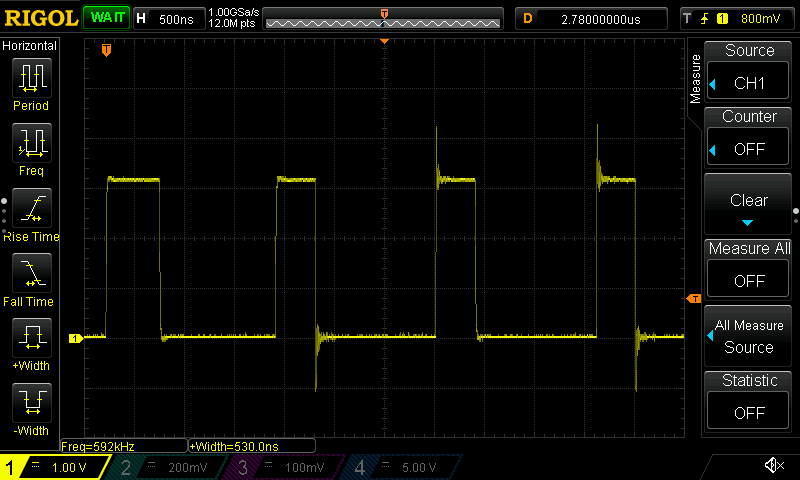News
Version 3.4.0 is released!
This is a feature and bug fix release, the last one for 2018.
Special thanks to NeuralSpaz for his outstanding contributions to the physic package.
This is the last version supporting go1.6 and lower. periph v3.5.0 will require go1.7 or later.
Version 3.3.0 is released!
‼️ This is an important bug fix update. ‼️
We highly recommend to upgrade.
Version 3.2.0 is released! A lot of things improved in the past 4 months.
This is a feature and bug fix update. Highlights are:
- Lots of new physics types.
- Adds support for Allwinner A20 and MIPS.
- Standardizes pin functionality names.
Version 3.1.0 is released!
This is a feature and bug fix update.
Version 3.0.0 is released!
This is a breaking changes major version bump, refactoring many APIs based on the learnings made in the past year, acquired hindsight by fine tuning drivers and feedback from users.
We do not take breaking users lightly!
Every single breaking change was done thoughtfully. We consider users have the right for an explanation why their time is spent on this, so this document lists the rationale for every single breaking change.
Version 2.3.0 is released!
This is a feature and user improvement update with new packages in preparation
for v3. This is the last v2 release (for real!). As of now, the v3 branch has
been merged into master so if you go get periph, you will get the v3
changes, not v2.3.0.
Periph just gained super powers (in the literal sense) to enable increasing or decreasing the power push on the GPIO pads. This will be available in the next release.
There are 2 output functions that can adjusted:
- The slew rate limiter, which limits the speed at which the GPIO changes from one level to another.
- The drive current, which limits how much total power is pushed on the line.
The broadcom processor has flags to configure the physical properties of the GPIO pads. periph’s bcm283x driver now expose a function to configure these. The driver also gained the ability to disable input hysteresis but this is for another post.
The program (attached at the end of this post) runs 4 pulses in 4 different GPIO pad configurations:
- 2mA drive with slew limited
- 16mA drive with slew limited
- 2mA drive with slew unlimited
- 16mA drive with slew unlimited
The default is 8mA with slew unlimited.
This screenshot was taken without any load, e.g. nothing connected to the pins except the oscilloscope itself:

Version 2.2.0 is released!
This is a polish and features update. I know a v3 was promised but we decided to punt on breaking changes since there was too much great stuff to bake into the v2 branch.
Historical note: periphextra and hostextra.Init() is deprecated.
Since my day job is working on continuous integration systems (CI), when I started periph.io I really wanted to have a strong testing system to make sure regressions wouldn’t go undetected.
The challenge is that first, I’m cheap, and second, I needed it to run tests on my Raspberry Pis, macOS and Windows machines without any maintenance, both before and after accepting PRs.
On one Sunday afternoon in November 2016, I hacked up what eventually became gohci.
 Edit this page
Edit this page